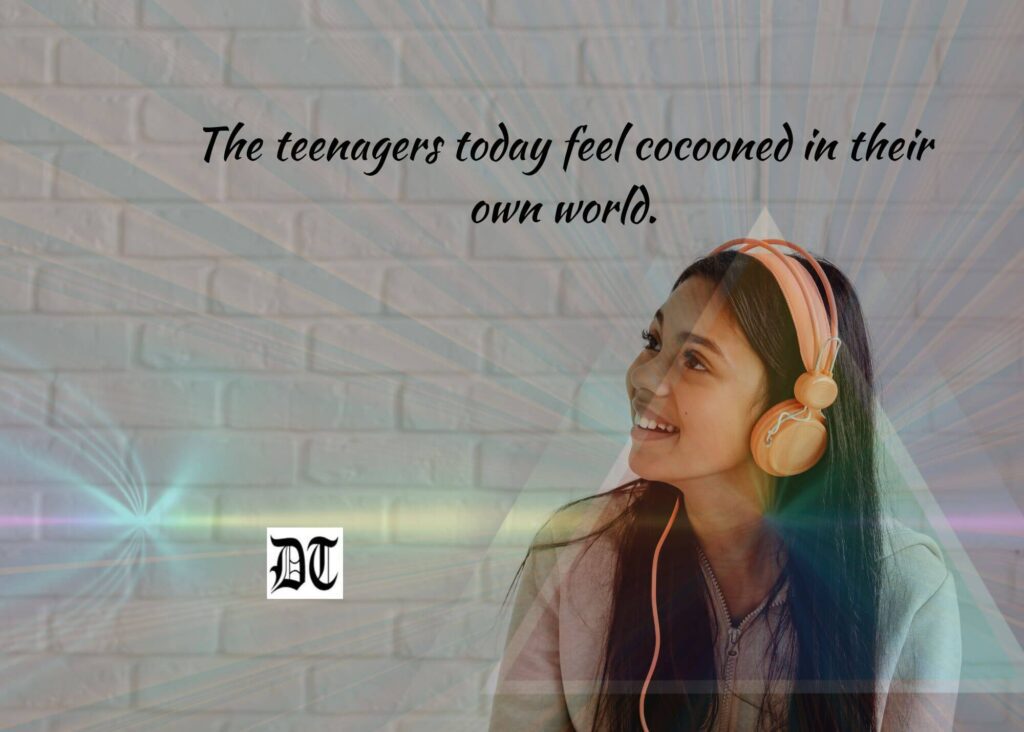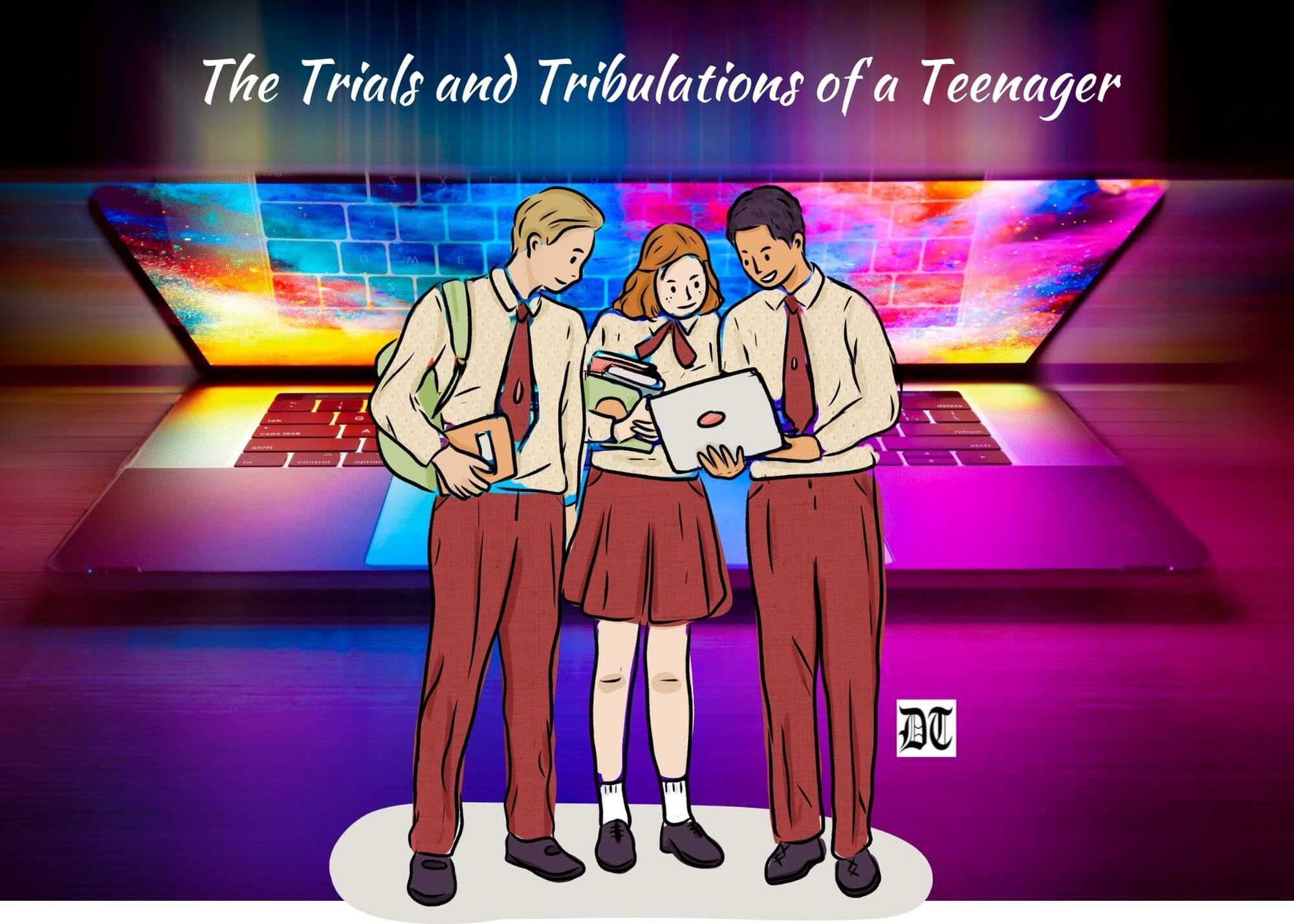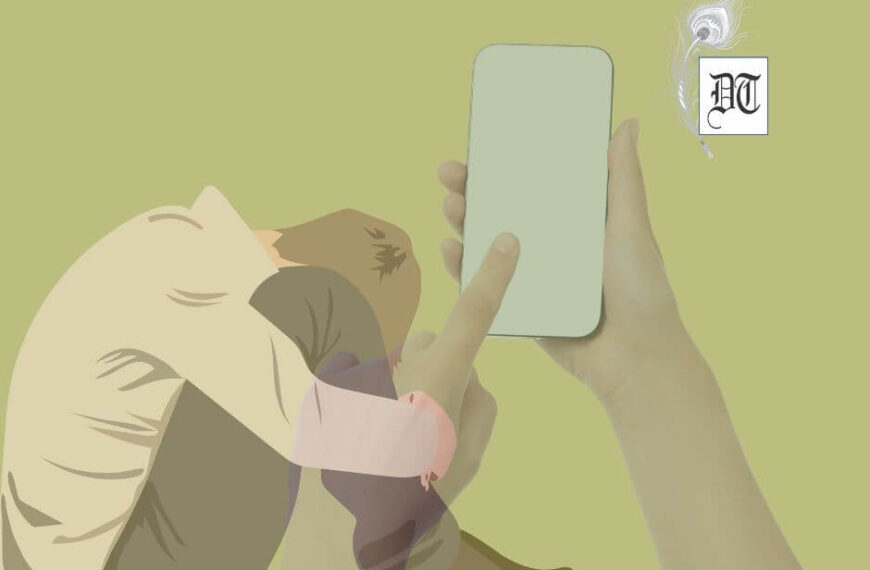Times have changed. Life is not as simple as it used to be. In this era of information explosion and social network sites, realities are skewed for the teenagers now. Meenu candidly dwells on the lives and times of the teenagers today.
“I think being a teenager is such a compelling time period in your life — it gives you some of your worst scars and some of your most exhilarating moments. It’s a fascinating place; old enough to feel truly adult, old enough to make decisions that affect the rest of your life, old enough to fall in love, yet, at the same time too young (in most cases) to be free to make a lot of those decisions without someone else’s approval.”
― Stephenie Meyer, The Twilight Saga: The Official Illustrated Guide
Adolescence I feel, is the most volatile time in a person’s life and most vulnerable of all phases. It’s the time when the child in the person is raring to grow up and feels it in his or her biology that he actually is. The transition is as intense physically as it is emotionally and that’s where the tough ride begins. As they struggle to embrace puberty and the craziness of raging hormones, their emotions swing from one extreme end to another — baffling the rest of mankind around them. The paradoxical emotions that one goes through are so overwhelming that one can go from being extremely warm and passionate about something — read person, project, and hobbies to being annoyingly ice cold and completely disconnected. And yet this is the time that carves an indelible mark on a person’s psyche in most cases. But haven’t we all gone through it? All of us who are no longer in that phase and are parents’ now. But, why do we feel that the unsettling emotions of teenagers in today’s age are a tad more or maybe more visible than it was earlier?
I want to look at this entire thing from a different perspective, a different lens so to speak.
We may broadly divide the phases of growing up as, infancy, childhood, adolescence, adulthood and old age. What and how we negotiate each phase will decide how easily we transition into the next phase and how we manage our relationships, work, career, etc.

When I was growing up, in the 70’s, I feel the world was a better place to live in. We hadn’t really heard of mobile phones, internet, laptops, terrorism, war threats, fast paced technology and the works. The only place to play was the neighborhood park. The only way to interact with friends was to go to their homes or shout out to them from the terrace sometimes. We knew real people and real emotions. We knew how to handle our own conflicts. We always had someone at home to talk to or come home to from school, either mom or grandparents. Most of all we had limited choices, for watching a television program, choosing where to go on a weekend but we had lots of friends we could play with or fight with.
The world is different now.
The world is different now. Technology has hijacked the realness of every experience. The teenagers today feel cocooned in their own world. All they need is a phone and an internet connection. Facebook, Twitter, Snap chat have made this world amazingly small but it has also created a deep chasm between hearts by encouraging the need to bypass real human connection and creating a kind of emotional numbness.
The teenager, since he or she feels life more intensely at this point in time, probably feels this numbness at the unconscious level but is not able to process it at the conscious level. They feel its ok to be islands and be in their own space. The energy they derive from the technology helps them sustain but it’s an illusion and it hits them when they experience relationships through this prism. It confuses them, troubles them and sometimes breaks them.
It becomes the duty of parents to keep it real- to keep their world real and to keep grounding them in this fast paced age of media and technology where overload of information is a click away.
Now, imagine how much information these teenagers are processing in today’s time and world.
I just heard someone say the other day that the amount of information that somebody had to absorb in their entire lifetime in the 14th century is equivalent to the amount of information that appears in the Wednesday edition of New York Times, baffling, isn’t it? Now, imagine how much information these teenagers are processing in today’s time and world.
The social sites mirror the fakeness and hypocrisy of our society as never before. It also mirrors the shadow sides of people who wear masks to portray a different persona in front of the world. It’s a scary world out there and the teenagers, no wonder are feeling the ebb and flow of their emotions even more intensely because of this game of hide & seek between the real and fake.
We had it easy because our lives were simpler with fewer choices.
The teenagers today have a tough time negotiating the rising pressure of studies in a fiercely competitive world, managing relationships with the opposite sex and same sex, and struggling to find their own space and place.
Adolescence is all about blending in and not standing out and yet today’s generation finds itself struggling with exactly the same because the difference between the two has become sharper.
There’s nothing called you achieve this, you will be rewarded.
With the amount of money parents splurge on their kids – economic independence whoa! Kids are hardly grounded these days – you ask for it and you get it. There’s nothing called you achieve this, you will be rewarded. Parents don’t have the time to teach basic values. The busyness of life has paralysed the parent- child relationship and deprived it of its inherent innocence and stability.
We need more sensitive parents to handle the fragility of hyper sensitive teenagers because hyper sensitivity is what teenage all about – so that they live a balanced adolescence life and do not carry the grudges and insecurities of a bitter teenager into their adulthood.
Haven’t we heard of adults, who refuse to grow up and manage their lives responsibly – becoming unreasonable, abusive, emotionally fragile men and women? They are stuck in their adolescent patterns and find it hard to break out of it.
I can’t help sharing what Catherynn Valente, in The Girl Who Fell Beneath Fairyland and Led the Revels There, said, “For though, as we have said, all children are heartless, this is not precisely true of teenagers. Teenage hearts are raw and new, fast and fierce, and they do not know their own strength. Neither do they know reason or restraint, and if you want to know the truth, a goodly number of grown-up hearts never learn it.”
Let’s admit, teenage years are the most crucial years of a person’s life and how sensitive we are as parents will help our kids charter their journey ahead.
Picture design Anumita Roy, Different Truths





 By
By
 By
By
 By
By
 By
By